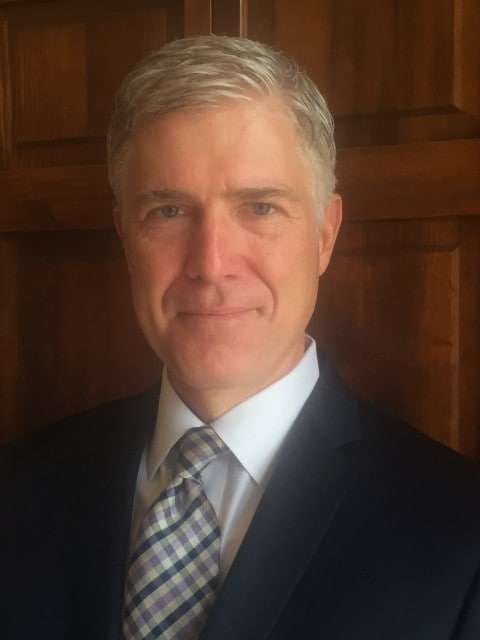The Volokh Conspiracy
Mostly law professors | Sometimes contrarian | Often libertarian | Always independent
Some questions I hope the Senate will ask Judge Gorsuch

Today is the first day of confirmation hearings for Judge Neil Gorsuch, Donald Trump's nominee to the Supreme Court. George Will recently published a thoughtful column with a list of questions he hopes senators might ask Gorsuch at the hearings. Most of Will's questions are ones I would very much like to hear the answers too, as well. Here are a few additional suggestions of my own:
1. In an article you published in 2005, you praised New Deal-era liberals for advocating "judicial restraint and deference to the right of Congress to experiment with economic and social policy." This passage seems to refer to New Dealers' commitment to eliminating all or nearly all judicial enforcement of structural constitutional limits on federal power (it was those limits that stood in the way of congressional experimentation with "economic and social policy" at the time). Do you believe that Congress and the president deserve greater deference on federalism questions than on other constitutional issues?
2. In the same article, you suggested that judicial review should only be used in "extraordinary cases." Could you explain to us what qualifies as such an "extraordinary" case?
3. You have eloquently stated your commitment to originalism as the best method of constitutional interpretation. Are there any situations where you think originalism needs to be supplemented with nonoriginalist methodologies? If so, when?
4. Most jurists believe that at least some precedents that were wrongly decided when first issued should nonetheless be allowed to stand. Do you agree? If so, how do you determine which incorrect precedents should be maintained and which should be overruled?
5. In some cases, litigants argue that facially neutral laws or executive actions should be invalidated because their true purpose is to discriminate on the basis of race, ethnicity, gender, religion, or some other forbidden classification. Such veiled discrimination is likely to be far more common than open discrimination in an era when government officials know that the latter will almost always get struck down in court. What standards should courts apply in these cases?
Even if these questions or others like them get asked, Gorsuch could potentially try to get around them without revealing much. Over the years, Supreme Court nominees of both parties have often tried to circumvent difficult questions. There are now a variety of standard tactics for evading them. Still, revealing answers do sometimes come out, and it makes sense for senators to at least try to pose the kinds of questions that might elicit them.
While I have some reservations about Gorsuch, overall I think he's a pretty strong nominee, and certainly better than I would have expected from Trump. Particularly reassuring is his relatively good record on free speech (a sharp contrast with Trump's own awful attitudes) and civil liberties, and skepticism of executive power. On the other hand, I do have potential concerns about Gorsuch's approach to some issues, including federalism and the general role of judicial review (reflected in my first two questions above), and the status of "unenumerated" constitutional rights.
But whether you view Gorsuch more negatively than I do or more favorably, his jurisprudence deserves careful consideration. Under both Republican and Democratic administrations, I have long argued that the Senate is entitled to examine the jurisprudential philosophies of Supreme Court nominees as well as their technical professional qualifications. That principle applies to this nomination, as well.


Show Comments (0)